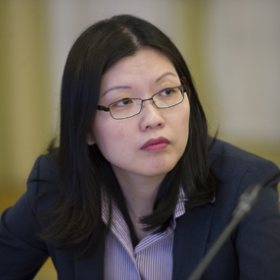
The Pentagon and China
On August 16, the Pentagon released its annual report on China’s military power. While the report highlights the potential for bilateral military cooperation, it also reveals a Pentagon wary of China’s growing military strength. Writing for EWI, Senior Associate Jacqueline Miller and China Program Associate Piin-Fen Kok interpret the report’s findings and contradictory tone.
For Miller, the report reveals that “concern in the United States is not just focused on China’s remarkable economic rise, but also on the modernization and expansion of its military.” Miller highlights the report’s concerns over sophisticated new Chinese weaponry, the evolution of military thinking toward protecting China’s economic interests abroad, and China’s perceived lack of transparency. Although the report expresses the hope that China’s increased military capabilities could be used for peacekeeping or humanitarian efforts, Miller argues that “the unavoidable takeaway is that China’s military rise is harmful to U.S. strategic interests.” And while the report is not likely to greatly impact the bilateral relationship, it does little to advance the Obama administration’s ultimate challenge: to work with China while advancing America’s strategic interests.
Kok focuses her analysis on the report’s implications for United States-China military-to-military exchanges. Kok writes that the report, released in a period of heightened tensions, poses another challenge for bilateral military relations. While a section of the report touts the importance of military cooperation, this is undercut by “unflattering references” to China’s motivations for military exchanges: ”They include China’s presumed desire to gain ‘insights into potential U.S. vulnerabilities,” Kok writes, and “to drive a wedge between the United States, its allies, and its partners, including Taiwan.” Kok finds China’s response – a call for the United States to be objective and proactive in mending relations – to be unsatisfying. For relations to improve, Kok writes, both sides will have to replace “rhetoric and posturing” with an honest attempt to communicate. Preferably in time for the 2011 report.
Click here to read Jacqueline McLaren Miller's Piece (66.34K PDF).
Click here to read Piin-Fen Kok's piece (49.89K PDF).


